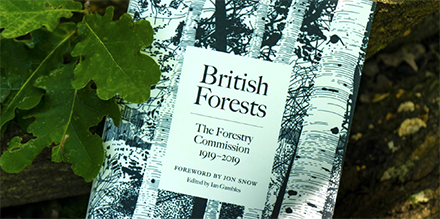
On 1 September, it was 100 years since the passing of the Forestry Act in the UK and the creation of the Forestry Commission. Amid the climate crisis, increasing demands for timber and the urgent need to protect wildlife, England’s trees and woodlands have never been so important. Source: Timberbiz
In recent times, the needs of society and the world changed. Environmental concerns emerged at the forefront of forest management, which spurred a huge investment by the Commission for wildlife conservation and the restoration of landscapes. As well as increasing tree cover, the Forestry Commission is planting a greater diversity of species to help protect landscapes from climate change, pests and diseases.
It is also carrying out tree planting trials to see how different species fair in diverse climatic conditions.
As well as being the country’s largest landowner, the Forestry Commission is the biggest single provider of outdoor recreation in England, with over 230 million visits each year.
This year, the Forestry Commission has been marking its centenary by inspiring people to connect with trees and woodlands to help protect them for generations to come. A program of events and activities has included the Big Forest Find, the largest ever survey of forest wildlife, an artistic film about sustainable timber production, new works by sculptor Rachel Whiteread and poet laureate Carol Ann Duffy, and a forest stamp collection released by Royal Mail.
A book has also been published on British forests and tells the Forestry Commission story from 1919 to the present day.
“This book brings together expertise from across our organisation to tell the story of our first 100 years. From timber production to caring for endangered species, tree related research to outdoor recreation, we hope readers will be intrigued and inspired by our work,” Ian Gambles, Chief Executive of the UK Forestry Commission, said.
The scope of activities this year reflects the nature of the organisation. While it is marking its centenary by telling stories from the past, it has one eye firmly on the future, and the next 100 years.







